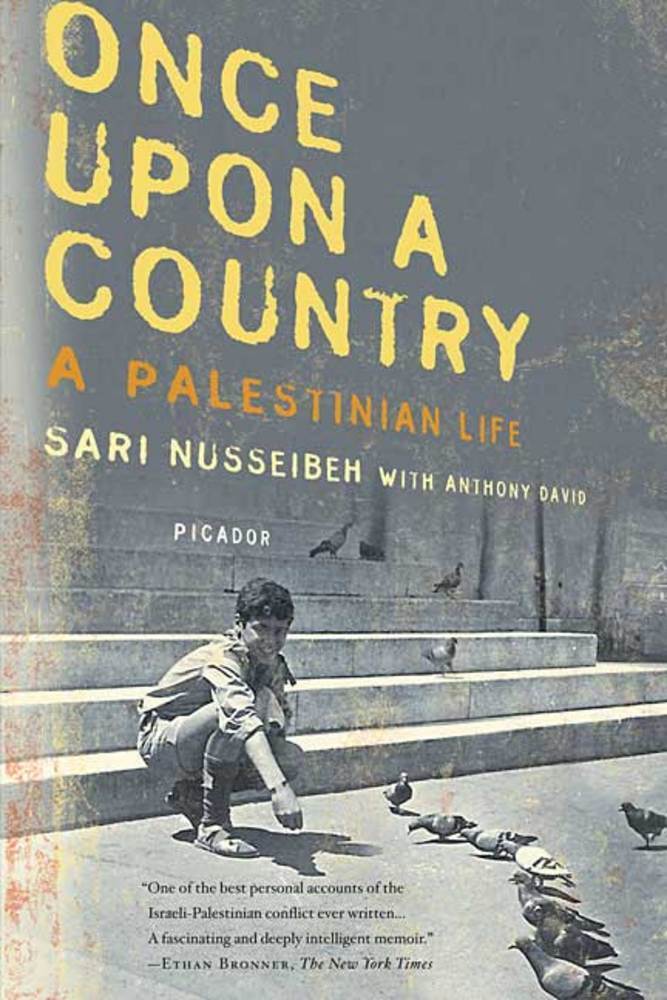
A New York Times Book Review Editors’ Choice
“One of the Best Foreign Affairs Books of 2007” — The Washington Post
“One of best books of year” — Christian Science Monitor
“Once Upon a Country is a remarkable chronicle of the Israeli-Palestinian conflict, seen through this improbable pair of eyes.” — Robert Malley, President Biden’s special envoy for Iran, writing in the Washington Post
“Once Upon a Country is a deeply admirable book by a deeply admirable man…Nusseibeh’s formidable achievement — his articulation of a liberal nationalism, his championship of nonviolence in the midst of savagery, his humane understanding of an inhumane predicament — leaves a drop of despair, because of how exceptional it is.” — Leon Wieseltier, The New York Times Book Review
“A fascinating and deeply intelligent memoir…Such refreshing self-deprecation — rare in Arab public writing — runs throughout this memoir, one of the best personal accounts of the Israeli-Palestinian conflict ever written.” — Ethan Bronner, The New York Times
“Sari Nusseibeh’s Once Upon A Country is a subtle, sad and humorous memoir which casts a fresh light on the Israeli-Palestinian tragedy as well as a vivid picture of Palestinian society.” — Amos Oz
“From the first elegant sentence, Sari Nusseibeh uses his poetic sensibility to illuminate the dislocation, oppression, fratricide, and extremism that have plagued his ‘ violated and broken land.” — Richard North Patterson, author of Exile
“Terrific…highly recommended for those who want to appreciate the dilemma of the Palestinian democrat.” — Christopher Hitchens, Slate
“If [Amos] Oz is interested in forging a myth of his own origins as well as of his country, Sari Nusseibeh prefers to debunk…It’s very much the story of Nusseibeh’s political and intellectual growth, told in a mild and good-naturedly self-deprecating tone and cast against the backdrop of his people’s troubled history.” — Adina Hoffman, The Nation
“Sari Nusseibeh’s chronicle of a life ‘lived in a broken and violated land’ reads at times like an unfinished nineteenth-century novel. In it there are villains and victims, patriots and fools, war and peace, betrayal and corruption, and an inevitable romance. We don’t know how the story will end. The book dramatizes recent history in Palestine as few others have done…His book has the ring of hard truth that no other Palestinian I know of has been willing to express with comparable eloquence and courage.” — Amos Elon, New York Review of Books
“There was no perfection in the ancient relationship between Muslims and Jews; it was not a relationship between equals, but between a ruler and an indulged minority. Still, Nusseibeh’s message — that true Islam need not be hostile to the Jewish nation — is of extraordinary importance today. As is this sometimes maddening but often profound book.” — Jeffrey Goldberg, The Los Angeles Times
“Nusseibeh’s autobiography is, perhaps, the most important to emerge from the Middle East for decades.” — Moris Farhi, The Independent
“No one is in more danger than a sane man in an insane world, especially a sane man who tries to do something to end the insanity.” — Charles Matthews, San Francisco Chronicle
